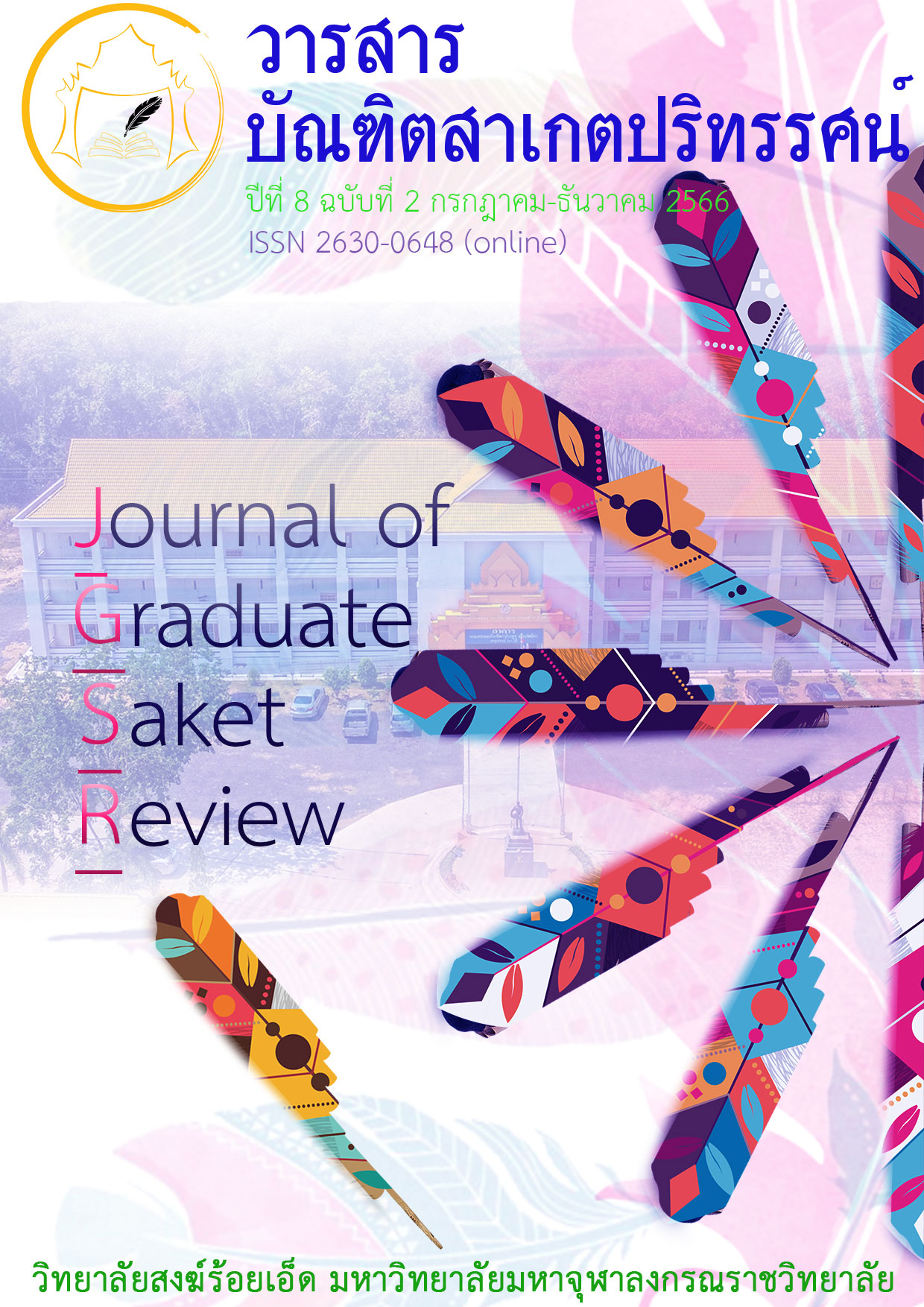Government Based upon Buddhist Theory
Main Article Content
Abstract
Government uses sovereignty in accordance with the law in administrating thecountry. It includes various forms such as democratic and dictatorship government. Government can also be divided into various levels as central, provincial and local government. Science of politics and government in Buddhism is mainly the teaching related to all aspects of humans’ life. Buddhist thought or theory in government is, thus, the conceptual framework aiming at studying political and governmental theories and the development of society from ancient times up to present contributing to the complexity of government. Government is the use of authority in accordance with the law for achieving the objectives in governing the country as a whole. Before Buddha lived brotherhood and enlightened himself, he had studied andsucceeded in 18 fields of science for being a king to govern the kingdom. Various teachings on politics and government are, therefore, appearing in Buddhism that the Buddhist government approaches can be studied and used as guidelines in governing oneself, governing society and governing the country.
Article Details

This work is licensed under a Creative Commons Attribution-NonCommercial-NoDerivatives 4.0 International License.
เนื้อหาและข้อมูลในบทความที่ลงตีพิมพ์ในวารสารบัณฑิตสาเกตปริทรรศน์ ถือเป็นข้อคิดเห็นและความรับผิดชอบของผู้เขียนบทความโดยตรงซึ่งกองบรรณาธิการวารสาร ไม่จำเป็นต้องเห็นด้วย หรือร่วมรับผิดชอบใด ๆบทความ ข้อมูล เนื้อหา รูปภาพ ฯลฯ ที่ได้รับการตีพิมพ์ในวารสารบัณฑิตสาเกตปริทรรศน์ ถือเป็นลิขสิทธิ์ของวารสารบัณฑิตสาเกตปริทรรศน์ หากบุคคลหรือหน่วยงานใดต้องการนำทั้งหมดหรือส่วนหนึ่งส่วนใดไปเผยแพร่ต่อหรือเพื่อกระทำการใด ๆ จะต้องได้รับอนุญาตเป็นลายลักอักษรจากวารสารบัณฑิตสาเกตปริทรรศน์ ก่อนเท่านั้น
References
ชุมพร สังขปรีชา. (2531). ปรัชญาและทฤษฎีการเมืองว่าด้วยธรรมชาติมนุษย์. กรุงเทพมหานคร:มหาวิทยาลัยธรรมศาสตร์.
ทวี ผลสมภพ. (2534). ปัญหาปรัชญาในการเมืองของโลกตะวันออก. กรุงเทพมหานคร: มหาวิทยาลัยรามคำแหง.
ปรีชา ช้างขวัญยืน. (2538). ความคิดทางการเมืองในพระไตรปิฎก. กรุงเทพมหานคร: จุฬาลงกรณมหาวิทยาลัย.
______. (2540). ทรรศนะทางการเมืองของพระพุทธศาสนา. กรุงเทพมหานคร: บริษัท สามัคคีสาส์น จำกัด.
พระธรรมปิฎก (ป.อ.ปยุตฺโต). (2543). พจนานุกรมพุทธศาสน์ ฉบับประมวลศัพท์. กรุงเทพมหานคร: โรงพิมพ์มหาจุฬาลงกรณราชวิทยาลัย
มหาจุฬาลงกรณราชวิทยาลัย. (2539). พระไตรปิฎกภาษาไทย ฉบับมหาจุฬาลงกรณราชวิทยาลัย. กรุงเทพมหานคร: โรงพิมพ์มหาจุฬาลงกรณราชวิทยาลัย.
วัชรา ไชยสาร. (2545). การเมืองภาคประชาชน. กรุงเทพมหานคร: หจก. วี.เจ. พริ้นติ้ง.
Chaisarn W.. (2545). Civic Politics. Bangkok: V.J. Printing Ltd. Partnership.
______. (2540 B.E.). Political Perspectives in Buddhism. Bangkok: Samakkeesarn Co. Ltd.
Changkhwanyuen P.. (2538 B.E.). Political Thought in Tipitaka. Bangkok: Chulalongkorn University.
Mahachulalongkornrajavidyalaya University. (2539). Tipitaka in Thai MahachulaLongkornrajavidyalaya Volume. Bangkok: Mahachulalongkornrajavidyalaya University Press.
Phradhammapitaka (P.A. Payutto). (2543). Dictionary of Buddhism. Bangkok: Mahachulalongkornrajavidyalaya University Press.
Phonsompob T.. (2534). Problem of Eastern Political Philosophy. Bangkok: Ramkham haeng University.
Sangkhaprecha C.. (2531). Political Philosophy and Theory on Human Nature. Bangkok: Thammasat University.


